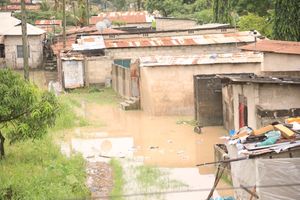Property market loses steam over cash woes

What you need to know:
As a result, developers are struggling to sell houses. Due to the cash crunch, it appears that the supply of houses exceeds demand.
Dar es Salaam. The real estate market has lost steam as financial woes are biting.
As a result, developers are struggling to sell houses. Due to the cash crunch, it appears that the supply of houses exceeds demand.
Pangani Real Estate Group officials criticise developers for poor handling of housing projects, but Avic Coast Land Development Ltd experts believe the government’s cost-cutting measures have reduced people’s incomes.
President John Magufuli banned all but essential foreign travels by public servants after he was sworn in 2015 to ensure discipline in government spending.
“We feel the pinch of the financial crunch,” Avic Coast Land Development marketing supervisor Mao Hongjun noted.
The situation has reduced the demand for houses, impacting negatively on Avic projects.
House prices range from $130,000 (Sh286 million at the prevailing exchange rate) to $550,000 (Sh1.2 billion).
“We have been forced to reduce the rate of house construction to keep pace with the low demand,” noted Mr Hongjun.Avic has been undertaking a project on 583 acres at Somangila in Dar es Salaam. Already135 houses have been built on 44 acres. The first phase of the project is expected to be completed this year.
During the first phase, the targeted customers are well-heeled people, according to him.
In the next phase slated for next year, Avic will build houses for people of walks of life.
Mr Hongjun hopes the real estate market will rebound.
However, he cited high interest rate on mortgage as a challenge in the real estate market.
Pangani Real Estate Group managing director Heri Bomani said net housing demand growth was low last year, causing the market occupancy to fall to 63 per cent, down from 74 per cent in 2013.
He said apart from illiquidity, poor developer strategy exacerbated the situation last year.
“The challenge with the real estate sector in Tanzania is that investors have often commissioned projects without feasibility studies,” he noted.
The trend was also caused by limited or no property development experience and cutting out the use of professional vendors to assist with the risking projects such as independent leasing companies.
“As supply has outstripped demand in certain sectors such as commercial property, this has led to reducing occupancy across a variety of projects and clusters,” he said.
Mr Bomani demand had been growing at a lower rate than supply.
During the period under review, the real estate market continued to witness strong supply, with several new malls, including City Mall, Mkuki Place and Rock City Mall in Mwanza completed.
Also some residential developments and commercial buildings such as Jangid Plaza and PSPF Twin Towers both here in Dar es Salaam were also completed during the period.
The supply was driven by both the private and public sectors.
Mr Bomani believes the future is bright as the government is relocating its seat to Dodoma and oil and gas projects will be carried out.
He hopes the shifting of the government seat to Dodoma will decongest Dar es Salaam. Moreover, new projects such as the airport and the Tazara flyover will ease movement in Dar es Salaam.
Once oil and gas projects start, the city should be very well placed to absorb the resultant spike in demand.
“Without the oil and gas story, Dar will need to position itself differently…probably as an alternate business hub to Nairobi and or as transit and tourism gateway to create demand,” he said.




